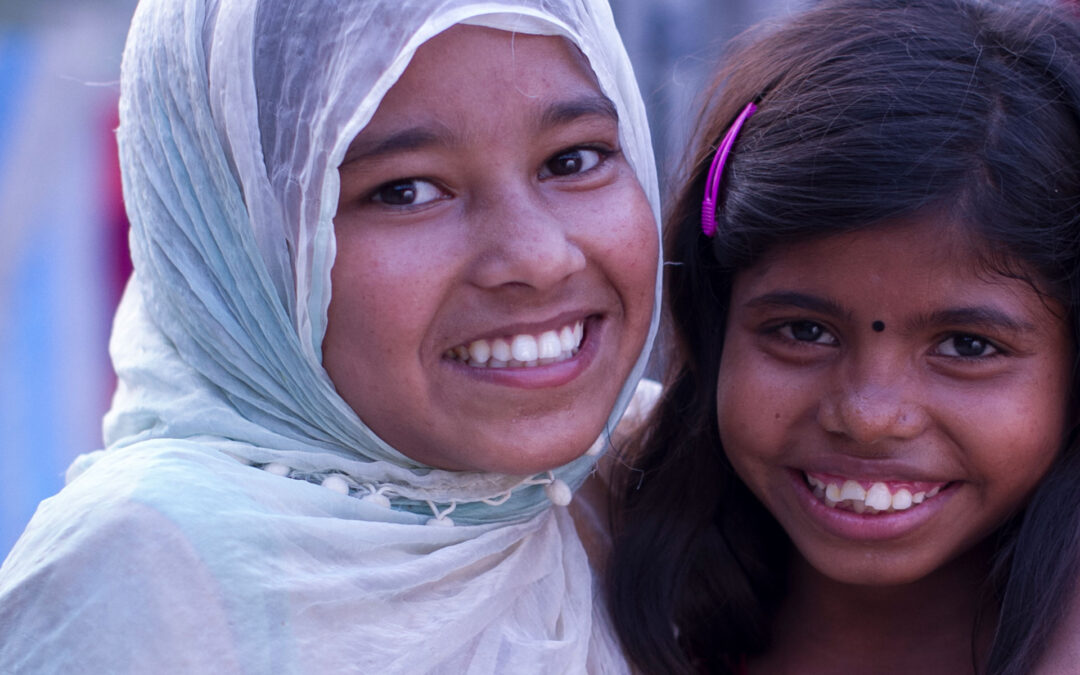Founded in 1993, Islamic Relief USA (IRUSA) is a nonprofit dedicated to solving a wide range of problems, from disaster relief and response to refugee crises. The organization has launched countless initiatives dedicated to helping women both in the United States and abroad, including programs dedicated to education, economic empowerment, healthcare, and women’s rights. Let’s take a look at how IRUSA has empowered women around the world through such initiatives.
IRUSA’s approach to women’s empowerment
Gender equality and women’s rights are among the many social causes that IRUSA champions. The organization has implemented several programs aimed at promoting positive change for women by prioritizing access to education, economic opportunities, and healthcare.
IRUSA has adopted a holistic vision designed to address the multifaceted challenges hindering women’s empowerment. Their comprehensive educational initiatives empower women and girls with knowledge, enabling them to break free from cycles of poverty and inequality. Additionally, IRUSA’s economic empowerment programs provide women with the skills and resources necessary to generate income and support for their families, which fosters economic independence and self-sufficiency. Complementing these efforts are health initiatives that prioritize women’s well-being by ensuring access to essential services.
Through this integrated approach to women’s empowerment, IRUSA is transforming individual lives while catalyzing positive change within communities.
Improving access to education
It’s a sad fact that not all youth can access the education they need to lift themselves out of poverty and expand their horizons. Some 244 million children between the ages of 6 and 18 lack access to education, according to IRUSA figures. Although there are numerous causes of this problem, the most common is poverty. IRUSA views education as a fundamental human right and a powerful tool for empowerment. The organization has implemented educational programs around the world that provide education to both boys and girls in vulnerable communities.
These initiatives break down barriers to access and provide quality education to those who need it the most. Through scholarships, school construction projects, and support for teachers, IRUSA ensures that both girls and boys have the opportunity to pursue their academic aspirations in safe and supportive environments. These investments in education equip girls with the knowledge and skills they need to thrive and empower them to become agents of change within their communities.
Providing economic empowerment
IRUSA has launched several economic empowerment programs aimed at lifting women out of poverty and helping them achieve financial independence. The group’s vocational training initiatives equip women with valuable skills that allow them to secure sustainable livelihoods and break the cycle of poverty.
These programs provide training in several fields, ranging from tailoring and handicrafts to business management and entrepreneurship. These choices empower women to pursue diverse career paths and create economic opportunities for themselves and their families. Meanwhile, IRUSA’s microfinance initiatives offer women access to small loans and financial services, which enable them to start or expand their own businesses and become drivers of economic growth within their communities.
Among these economic empowerment initiatives are a program to support women entrepreneurs in Afghanistan, a socio-economic empowerment and small business initiative in Somalia, and a microfinance program that provides crowdfunding for entrepreneurs in Pakistan.
Promoting health and well-being
IRUSA recognizes that women have unique healthcare needs, and that access to healthcare is a key component of women’s empowerment. Accordingly, the organization works to provide comprehensive health services, including those tailored to the specific needs of women and girls.
These health services include everything from reproductive health and maternal care to screenings for preventable diseases. Through a focus on preventive care, education, and access to essential services, IRUSA empowers women to take control of their health and well-being.
Recent projects have included an initiative to provide primary healthcare and psychosocial support to women and children in Palestine, a mobile clinic for Syrian refugees and host communities in Jordan, an initiative to reduce global acute malnutrition rates in Niger, and a primary healthcare program for internally displaced people and host communities in Somalia.
Ending early and forced marriage
Through its membership in the global Islamic Relief federation, IRUSA is actively engaged in eradicating early and forced marriage (EFM), which is particularly prevalent in countries like Niger, Bangladesh, Chad, Mali, Central African Republic, and India.
Drawing from extensive research and the group’s own field experience, Islamic Relief advocates for setting the legal minimum age for marriage at 18 for both genders. This stance aligns with their Child Protection Policy and aims to ensure that anyone entering marriage possesses the maturity to provide free and informed consent.
By supporting this policy, Islamic Relief seeks to safeguard the rights of children and youth, including access to education, healthcare, and protection from abuse. This multi-faceted approach addresses the complex socio-cultural, economic, and legal factors that contribute to EFM and emphasizes community awareness, empowerment of girls and women, and support for families.
Through partnerships and interventions, IRUSA strives to create lasting change and promote gender justice, healthy families, and the sanctity of marriage in Muslim communities and beyond.
